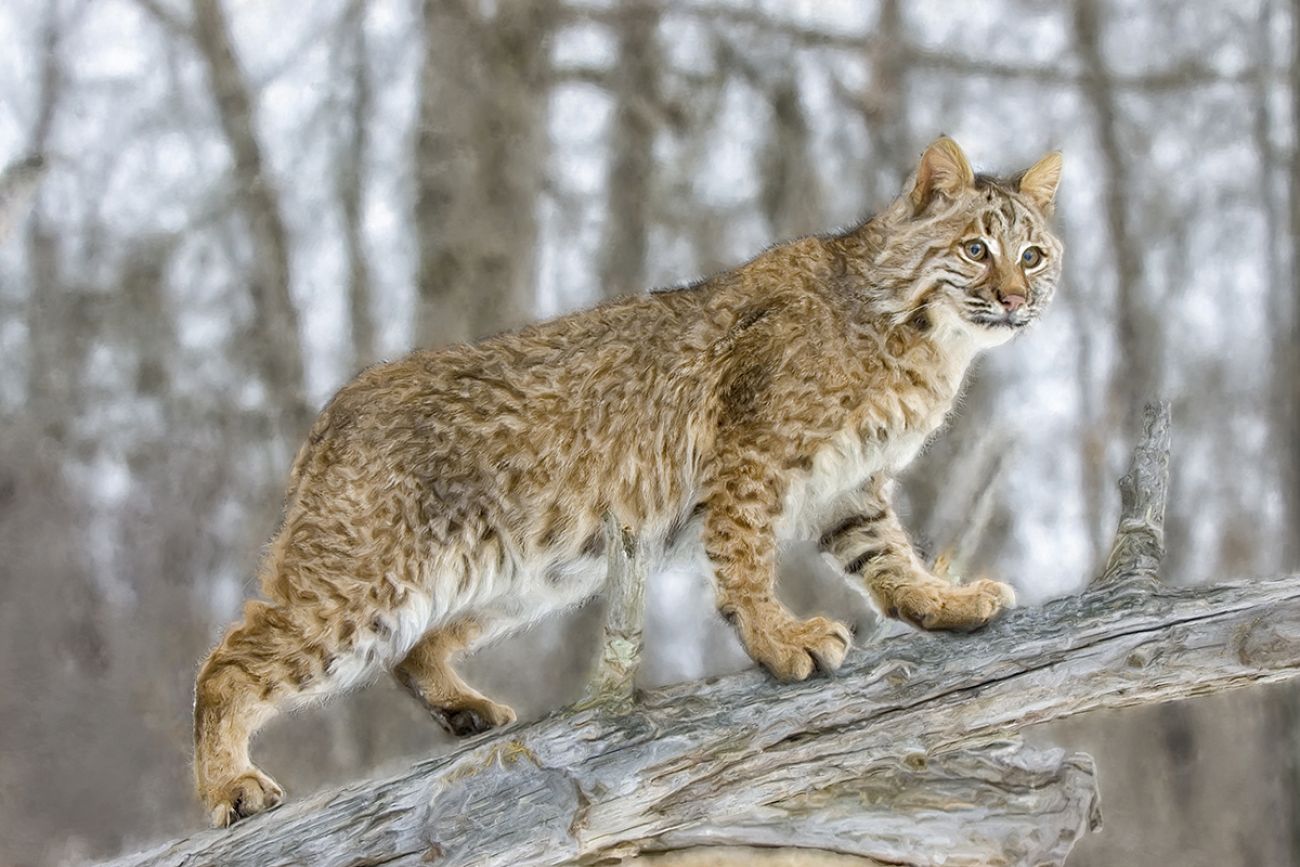Michigan OKs expanded bobcat hunting season over activists’ concerns

LANSING — Hunters and trappers can now kill bobcats in the southern Lower Peninsula in the fall.
Over objections from animal activists, members of the Natural Resource Commission voted 7-0 on Thursday to create a bobcat season in nine more counties: Muskegon, Montcalm, Gratiot, Saginaw, Ottawa, Kent, Ionia, Clinton and Shiawassee.
Expanded season
The Michigan Natural Resource Commission voted Thursday to expand bobcat hunting and trapping season. The limit is one bobcat per hunter unless otherwise noted.
- Southern Lower Peninsula: Dec. 10 to Dec. 20 for hunting; trapping Jan. 1 to Jan. 11
- Northern Lower Peninsula: Dec. 10 to Dec. 29 for trapping; Jan. 1 to Jan. 20, 2023 for hunting.
- Upper Peninsula: Oct. 25 to Dec. 26 for trapping; Jan. 1 to March 1 for hunting. Hunters or trappers could kill a second bobcat if they receive another license for private property.
The wildcats with bobbed tails, which are about twice the size of cats, disappeared from the Lower Peninsula after the logging boom in the late 1800s but can now be found in every Michigan county.
Related:
- DNR announces fishing regulations for Michigan’s 2022 season
- Federal judge kills chances of Michigan wolf hunt
- Duck and goose populations booming in Michigan. Other birds? Not so much.
In addition to creating an 11-day season in the southern counties, state regulators also expanded the hunting and trapping season in the northern Lower Peninsula to 20 days with two full weekends. The limit per hunter remains one.
“The population is fairly resilient and able to absorb harvest pressure,” said Adam Bump, a bear and furbearer specialist for the Department of Natural Resources, which recommended the expanded season.
“When we’re opening those nine counties, we’re really just opening a larger area to harvest the same population.”
National Resources Commissioner David Nyberg said state data indicates the bobcat population is expanding and can support an expanded hunt.
“We’re also going to be able to further support the actual act of conservation through the funding of licensed dollars that supports that work,” Nyberg said.
Expanding bobcat hunting to the southern Lower Peninsula means more people can buy licenses that fund the state’s wildlife conservation efforts.
In 2020, some 13,400 people registered to hunt or trap a bobcat. It costs $15 for a furbearer hunting license for those ages 10 and 64. That price drops to $6 for people who are 65 and older.
Proponents say the expansion won’t impact the population of bobcats because they are hard to hunt and trap. One Michigan survey found that only 365 of 2,810 people who hunted bobcats in northern Michigan bagged one.
Michael Schippa of Michigan Versatile Hunting Dog Federation said he’s been catching and releasing bobcats for 25 years. He said he believes bobcats in Michigan have come from states like Ohio and Indiana.
“The expansion is a very conservative approach that the DNR has taken,” Schippa said. “We have animals going back and forth across state borders. We will always have that exchange.”
But animal advocates oppose the hunts because the bobcats are primarily killed for their pelts.
“This proposed expansion will cause untold harm to bobcats and kittens hunting and trapping orphan dependent kittens, leaving them to starve or die of predation or closure,” said Molly Tamulevich, the Michigan director for Humane Society of the United States.
Another speaker, Trish Marie, said she worries the expanded hunt will increase the rodent population in the southern Lower Peninsula.
“I have a kajillion squirrels covering my property and the primary prey of bobcats is squirrels,” Marie said. “Bobcats play an important role in keeping the number of squirrels, chipmunks and other rodents down.”
Marie also noted that the DNR is recommending expanding bobcat season when other states are restricting or banning killing the animal.
Some states, including Illinois and Colorado, have considered legislation to ban hunting and trapping bobcats. California prohibited hunts outright in 2019, and Iowa last year dropped plans to expand hunting due to resident opposition.
Michigan Environment Watch
Michigan Environment Watch examines how public policy, industry, and other factors interact with the state’s trove of natural resources.
- See full coverage
- Subscribe
- Share tips and questions with Bridge environment reporter Kelly House
Michigan Environment Watch is made possible by generous financial support from:
Our generous Environment Watch underwriters encourage Bridge Michigan readers to also support civic journalism by becoming Bridge members. Please consider joining today.
See what new members are saying about why they donated to Bridge Michigan:
- “In order for this information to be accurate and unbiased it must be underwritten by its readers, not by special interests.” - Larry S.
- “Not many other media sources report on the topics Bridge does.” - Susan B.
- “Your journalism is outstanding and rare these days.” - Mark S.
If you want to ensure the future of nonpartisan, nonprofit Michigan journalism, please become a member today. You, too, will be asked why you donated and maybe we'll feature your quote next time!






